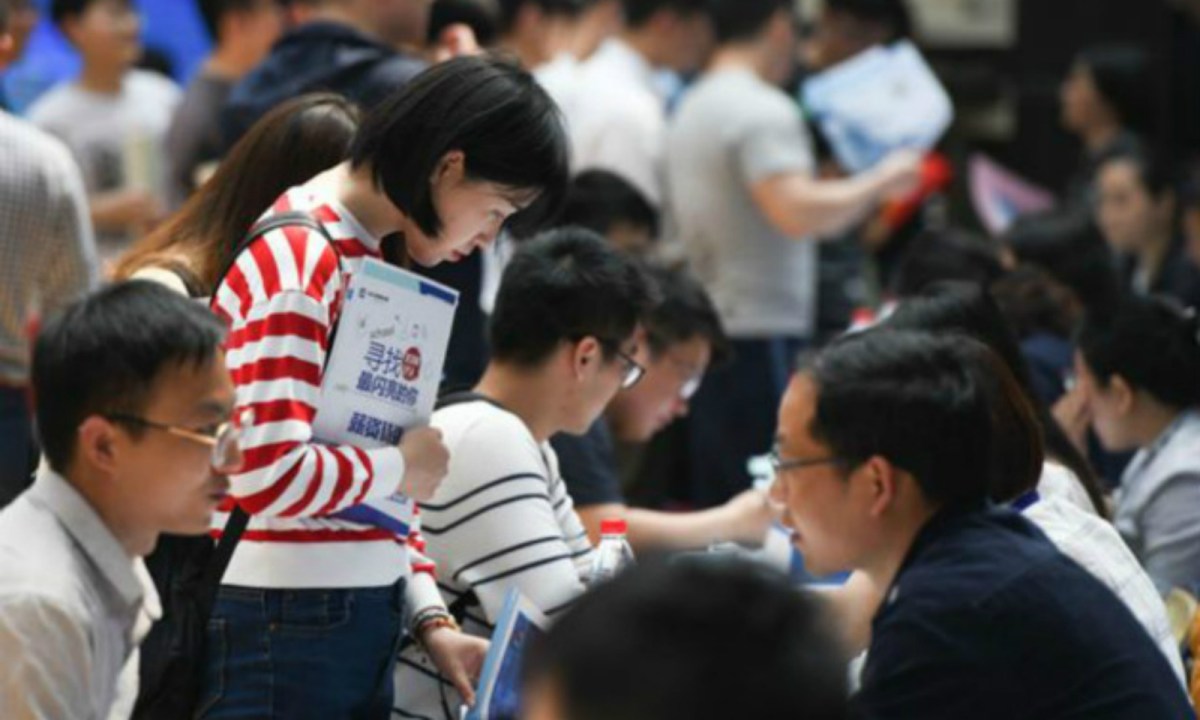It was supposed to be the high season for job recruitment in China after the Spring Festival, particularly in March and April. However, the country’s job market has seen uncertainty due to the Covid-19 epidemic.
While the overall recruitment demand did not decline significantly amid the epidemic, the pace of recruitment has been disrupted, several recruiters told Asia Times.
“The epidemic has an impact on corporates’ recruitment plans as companies have slowed down their pace of recruitment. The hiring and on-boarding processes of new employees have to be fine-tuned,” said an unnamed staff member of the human resources department of a Chinese insurance company.
According to the staff member, the usual high season of recruitment is in March and the impact of the epidemic on the job market has yet to be seen. He said insurance firms usually have high demand in recruiting salespeople and their recruitment departments tend to begin hiring plans earlier than companies in other sectors.
But this year, recruitment departments have no choice but to change their plans due to the epidemic. They will use online written tests, webcam interviews and e-contracts to complete the hiring process.
Online hiring processes can help ease the problems that college graduates are now facing in their job hunts, said Chen Shiyao, a deputy director of the Guidance Department of the Student Employment and Entrepreneurship Promotion Committee, Jimei University.
“We have sorted out a series of employment-related online resources for students. Some companies have conducted online interviews and job position presentations,” Chen said. “Companies’ work plans have been disrupted while students are unable to go out.”
More graduates fewer vacancies
In fact, even if there was not an epidemic, the job market for college graduates in 2020 had been under pressure.
The Ministry of Education said the number of college graduates would reach 8.74 million this year, up 400,000 from a year ago.
Besides, the number of people who took the admission examination of postgraduate schools also increased by 17% to 3.41 million, a historic high, this year. Those who failed to be admitted will search for jobs and add pressure to the job market.
“It’s a tough job-hunting season for graduates this year,” said Ying Xiwen, a deputy director of the Regional Economic Research Center, Research Institute of China Minsheng Bank.
“This year’s graduation season is indeed tough for graduates. Due to the epidemic, many corporates’ hiring schemes at colleges have been postponed while some vacancies have been temporarily canceled due to companies’ operating pressure,” Ying said.
“We believe that the impact of this epidemic on the economy and job market will be far more severe than that during the 2003 SARS period,” Zhao Bowen, a research director of Bluestone Asset Management, told Asia Times.
“The epidemic has mainly affected the labor-intensive service sectors,” Zhao said.
During the period of SARS in 2003, the percentage of the tertiary industry’s contribution to GDP fell significantly, he said. However, as the Chinese economy was mainly driven by the secondary industry at that time, SARS did not have a huge impact on the overall economy and the urban unemployment rate throughout the year, he added.
The net increase in the number of employed people in urban areas reached 10.71 million in 2003, a record high, and even more than in 2004, Zhao said.
E-commerce
The Chinese economic structure has undergone a huge transition since the SARS period in 2003. According to China’s National Bureau of Statistics, the percentage of the tertiary industry’s contribution to GDP increased to 61.5% in 2018 from 39% in 2003. Due to the fact that it was usually a high season of consumption during the Spring Festival consumption, the epidemic’s negative impact on the dining and tourism sectors was significant in 2020.
The number of active job seekers in the first 10 days after the Spring Festival in 2020 decreased by 30% from the same period in 2019 due to the epidemic, according to a report published by BOSS, a human resources website. However, the recruitment demand plunged by more than 60% in the catering and hotel sectors, 75% in the tourism sector and 70% in the advertising and media sector for the same period.
“The service industry and labor-intensive industries have suffered the most in the short term. In the medium to long run, the traditional offline industries, such as the tutorial and cinema sectors, will continue to feel the pressure from the online businesses,” Ying Xiwen told Asia Times.
Ying said new opportunities are emerging in some online industries, including internet culture, entertainment and education sectors. He said service providers such as express delivery, food delivery and online shopping groceries will also benefit.
Companies in the logistics, online fresh food retailing and online education sectors have high demand in human resources, the BOSS’ report showed.
Ying said the epidemic and the progress of the resumption of companies’ operations will have an impact on the job market.
The number of new infections in non-Hubei areas has recently been declining, he said. If this trend continues, the impact of the epidemic on the job market may end in mid or late March, he said, adding that the general situation may improve in the second half.
























